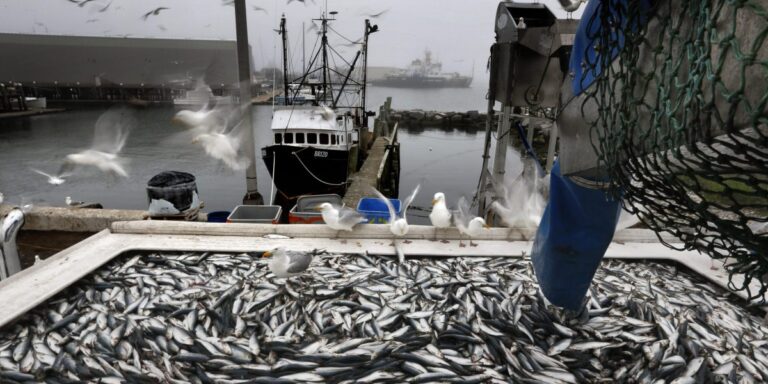
Several New England commercial fishermen convicted in fraud scheme critically important baitfish species and which prosecutors described as complex and far-reaching.
The fishermen were convicted of “knowingly circumventing commercial fishing reporting requirements” as part of a scheme involving Atlantic herringprosecutors said in a statement. The defendants included the owners, captains and crew members of the Western Seaa vessel operating out of Maine.
In March, the Western Sea’s owner, Glenn Robbins, pleaded guilty to submitting false information to the federal government about fishing and selling Atlantic herring and failing to pay taxes, prosecutors said. Members of the vessel’s crew conspired to submit false voyage reports to the federal government from 2016 to 2019, court records show. The charges are misdemeanors.
Robbins was sentenced Thursday to two years of probation and a $25,000 fine, and Western Sea was fined $175,000. The false information threatens to endanger a species of fish that is vital to the lobster bait business, federal prosecutor Darcie McElwee said.
“The defendants in this case have misused regulations to fill their own wallets – regulations that are in place to ensure that Atlantic herring are not overfished and are available for future generations of fishermen and to preserve the viability of the marine ecosystem,” McElwee said.
Reached by phone Monday, Robbins said that despite his plea, he does not consider himself guilty and that he accepted the plea deal because of the uncertainty of taking the case to a jury.
“We took the plea deal just so we wouldn’t be criminals,” Robbins said.
A federal judge last week also sentenced a part-time captain and three crew members to similar sentences. Those defendants all pleaded guilty in March.
Four other defendants were convicted earlier this year and received similar sentences. All of the defendants in this case are based in Maine or New Hampshire.
Federal rules require fishermen to submit trip reports on the species they caught, the weight of the catch and the dealers who purchased the fish.
Herring is an important part of the food chain, being consumed by marine mammals, large fish and seabirds. Fisheries managers have raised the issue sustainability concerns of the Atlantic herring population in recent years.


